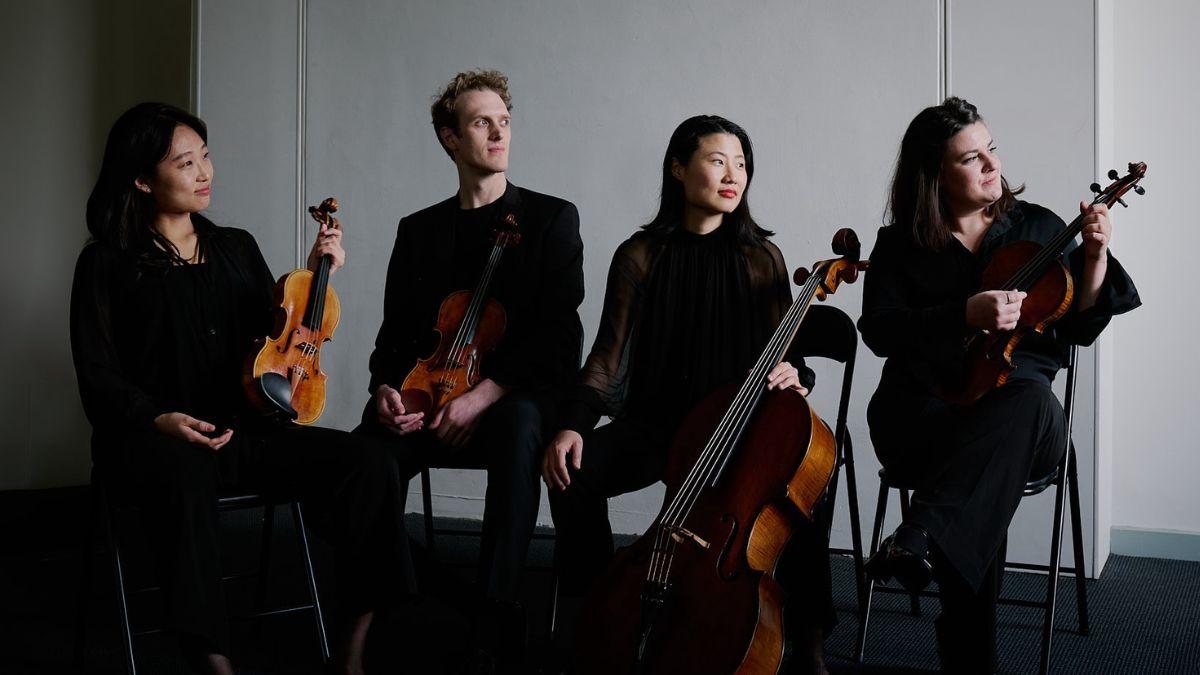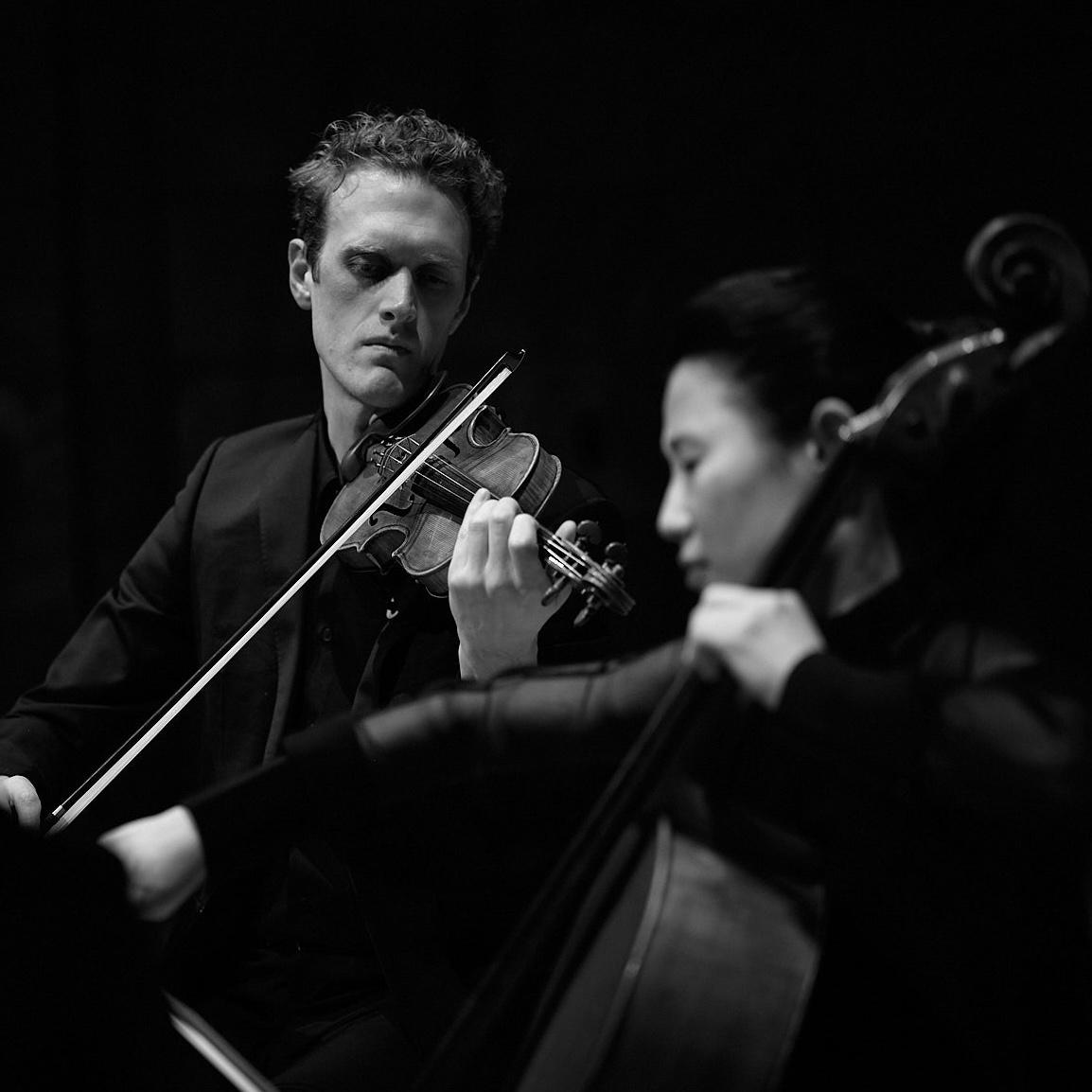Award-winning ANAM alumni ensemble, Affinity Quartet, have just embarked on one of their most ambitious Australian touring projects to date, performing Beethoven’s complete Opus 18 string quartets. We spoke with alum Mee Na Lojewski (cello 2014) at the commencement of the tour.
Performing all six quartets of Beethoven’s Opus 18 is an ambitious undertaking. The Opus 18 quartets conclude the end of Beethoven’s ‘early’ compositional period, with hints of the innovative genius that was to come with his later quartets. What is it about these early-career works that you wish to share with audiences? Why do they still capture our imagination some 200 years later?
The Opus 18 quartets are compact and compositionally rich with ideas and experimentation. Listening to these works is striking in terms of lineage - how they evoke the sensibility of Haydn and Mozart quartets and yet mould something that’s never been imagined before. Also knowing Beethoven’s later quartets, the Opus 18 works reveal kernels of ideas and material that he would carry with him over the next three decades into his ten subsequent works for string quartet.
Embarking on a tour program of the complete Opus 18 (about three hours of music) requires intense study and rehearsal, and demands our highest levels of virtuosity and focus. In Melbourne at Gasworks Theatre and at Four Winds in Bermagui, NSW, we will perform all six quartets in two consecutive concerts — for us, this is a rare and exciting programming opportunity.
Beethoven’s string quartets are so compelling because they convey the vast and rich spectrum of human expression. It seems the string quartet was the perfect medium for Beethoven to create his vision of a fellowship of humanity, enacted and unfolding on stage in the most intimate dialogue between four musicians. I think this is what we want to share with our audiences, and it’s what makes performing Beethoven’s quartets so relevant for us today.
Immersing oneself in the sound world of a single composer must reveal special insights into their character and expression. What are the challenges and joys of performing these works? Does this deep exploration into this pivotal opus affect the Quartet’s approach to other works in the canon, or even new works?
Absolutely. Similarly to how composers study the works before them as models, the more repertoire we learn and the more intimately we know the works of a composer, the more chance we have of understanding the evolution of a form and a composer’s meaning. It feels very true that a ‘musician never stops learning’.
Beethoven is pivotal and influential to the history of string quartet composition. It has been said by many that a string quartet’s raison d’être is to grapple with his complete oeuvre – his sixteen string quartets. The challenges of Beethoven’s quartets are high technically, but also in terms of ‘quartet craft’. They provide invaluable study in ensemble playing — in precise and versatile rhythms, in harmony and dynamic shadings, sound quality, clarity and balance. For Affinity, tackling the Opus 18 is a joy – bringing us one step closer to understanding Beethoven’s genius, and a chance for us to grow and deepen our commitment with each other musically.
How long has Affinity Quartet been working on rehearsing these string quartets? Has it been a long maturation, or an immersive deep-dive?
We’ve each played different quartets from the Opus 18 set. These works are celebrated, so they loom large in our minds - I think it’s safe to say we have each been immersed with them for years. Coming together to rehearse this season is certainly a big endeavour though. We began preliminary rehearsals in February, and Affinity studied and performed two of the quartets in Madrid earlier this year around our other programs in Europe. Our current rehearsal period is focused on all six quartets in concentrated rotation, and performing three of them in four concerts before the end of July. In August, we return after a couple of weeks’ break for the complete cycle of performances in September and November.

What are your personal favourite moments from the Opus 18 set of quartets?
Seonhye: It's so hard to choose just one. I generally like the slow movements more, because they allow us to listen to each other's sound more closely, feel more deeply, and have a richer musical conversation.
Nicholas: Number Two for me. The emotional breadth of this quartet is staggering. The graceful politeness of the first movement, the generosity of the second, then the third, cheekily poking fun of the Scherzo. And whatever kind of day I’m having, playing the Finale always improves my mood. There’s all the wit of Haydn, mixed full of excitement, turmoil and a raucous finish. The Second Quartet takes you on such a journey.
Meagan: I’m not sure that I could choose just one, but I do love the drama of the Fourth Quartet and the cheekiness of the Sixth. All six of the set are tremendously special. It’s remarkable to be able to play these quartets - though they were written early in Beethoven’s career, one can see the seeds of ideas for the late great quartets sprinkled throughout. This is the first time I’ve had the opportunity to seriously dive into the Opus 18, and it’s been incredibly rewarding!
Mee Na: Each of the quartets is so convincing and brings different emotions to the fore. But perhaps I’ll say Number 1 in F Major. It opens with a vibrancy that I love, a sense of courage and positivity about the future, and then its slow movement is one of the most sublime – Beethoven captures a feeling of searching for eternity and of heartbreak. I am drawn to this music’s incredible emotional depth.
How do the members of Affinity Quartet keep performing at their best with the rigours of life on the road?
A string quartet’s life is demanding. For a rigorous tour we need to allow significant time for the rehearsal and the preparation process. Similarly to the way a concert soloist or a conductor prepares, we spend a lot of time working towards what’s musically convincing.
The bulk of our rehearsing is in Melbourne - concerts here make up less than 20% of our tour season, so we are on the road quite a bit. We need to train individually as well as together, and to prepare mentally for the pacing of our schedule. When we’re touring, we spend a lot of time with hosts, presenters, audience members and friends in different places. There’s an extra sociability that is integral and enjoyable, but coupled with sleeping in new bedrooms every few days and eating on the go, it can also be tiring. We have learned to try to be efficient with limited time, to expect the unexpected, to enjoy silence and a laugh wherever possible, and to conserve our best energy for the performances!
For more information about Affinity Quartet, and to purchase tickets to their upcoming performances, visit affinityquartet.com.au
Their Beethoven Opus 18 performance dates are:
Sat 20 Jul, 2.30pm – All Saints Church, Bodalla NSW
Wed 24 Jul, 1.30pm – MIVA Hall, Mallacoota VIC
Fri 26 Jul, 6pm – Melbourne Athenaeum Library VIC (part 1, nos. 4 and 5) SOLD OUT
Sun 28 Jul, 2pm – Aireys Inlet Community Hall VIC (part 1)
Sat 31 Aug, 8pm – The Wedge, Sale VIC
Fri 6 Sep, 6pm – Melbourne Athenaeum Library VIC (part 2, nos. 1 and 6)
Fri 13 Sep, 7pm – NGV Friday Nights, National Gallery of Victoria VIC
Sun 15 Sep, 4pm – Aireys Inlet Community Hall VIC (part 2)
Thu 19 Sep, 7pm – Gasworks Theatre, Albert Park VIC (part 1)
Sun 22 Sep, 4pm – Gasworks Theatre, Albert Park VIC (part 2)
Sat 28 Sep, 6pm – Four Winds, Bermagui NSW (part 1)
Sun 29 Sep, 12pm – Four Winds, Bermagui NSW (part 2)
Fri 15 Nov, 6pm – Melbourne Athenaeum Library VIC (part 3, nos. 2 and 3)
Fri 22 Nov, 7.30pm – Geelong Chamber Music Society VIC
Words by Laura Panther (Senior Alumni Coordinator) and Mee Na Lojewski (alum 2014)
Image credits: Kristoffer Paulsen
